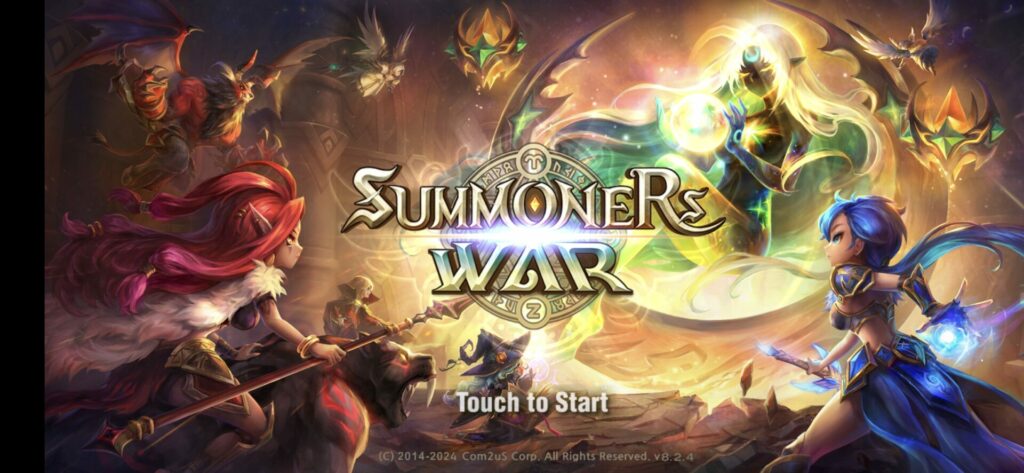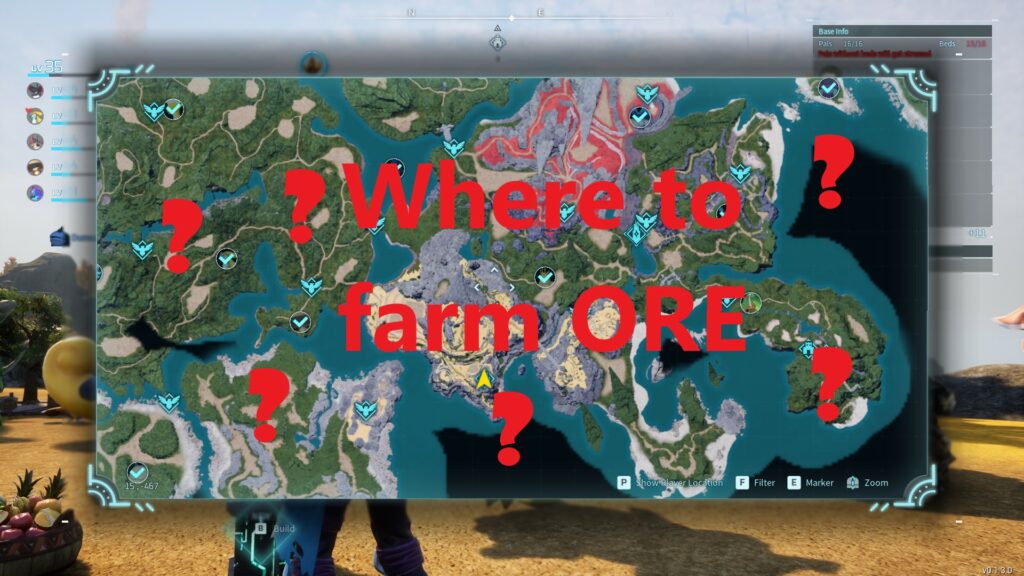VPNs are popular in the gaming world because they’re meant to solve all sorts of issues — or at least that’s what your favorite VPN-sponsored YouTuber says. They can solve geo-restrictions, give you speed, give you all the protection you need, solve world hunger! Just sign up using their code.
But, let me tell you — that’s not always true, or at least not fully. And here’s a fun fact about me: for years, I worked for a very popular VPN company (whichever one came to your mind — yes, it’s that one). So I know from first-hand, insider experience and info what they’re good for, and what they’re not.
And since I keep seeing wrong info out there, I decided to create this guide to help you parse through marketing fluff and learn how to really use a VPN to your advantage. Hope it helps!
What Is a VPN, Really? (And How It Affects Gaming)
A VPN, or Virtual Private Network, is a service that encrypts your internet connection and routes your traffic through servers in different locations around the world. What it basically does, in layman’s terms, is it makes you look like you’re browsing from a different place than you actually are. It gives you a different IP address entirely.
In the context of gaming, this has a few direct consequences:
- Your traffic may take a different path, which could be faster or slower depending on the VPN server and your ISP (internet service provider).
- Your IP address changes, making you more anonymous and harder to target.
- Your data is encrypted, which protects you on public Wi-Fi or from bad actors trying to snoop or attack your connection.
So, a VPN affects your speed, location, privacy, and in some cases, even access to games themselves.
Why Gamers Use VPNs
Let’s look at the main use cases that people use VPNs for in gaming, and when they’re actually useful.
1. Bypass Region Locks & Play Geo-Exclusive Games
Some games launch in specific countries first, or lock servers and events to particular regions. You likely wanted to play a new game at some point, that was only available in Korea or Japan, and wouldn’t be available elsewhere for years. Or maybe you wanted to get a game as soon as possible.
With a VPN, you can:
- Access early game releases (e.g., play a game on the New Zealand server a day before it drops in the US).
- Join events or claim bonuses only available in certain regions.
- Play games that are banned or not available in your country (e.g., PUBG Mobile in India).
Does a VPN work for all of this? Well, sometimes.
For example, if you want to get a game early, you could use a VPN to get it, but the place where you’re buying it might not accept your card because it’s not from the correct country. It’s happened to me before. The VPN does its job, and I can see the big “Buy” button, but once you click it, a whole host of issues appears because you do have to give your address and your real payment info, and all of that makes it difficult to actually use a VPN for this purpose.
Same goes for getting in-game stuff that isn’t available in your location but is available in other places. Whenever you have to submit your actual info that doesn’t match your VPN location, it doesn’t quite work.
Now, if the game you want to play is actually free, then things are much simpler. Just turn on the VPN, pick the right location, and download. It’ll work like a charm.
Keep in mind, though, that you can get banned. Some games give permanent bans for using a VPN, and it’s often not worth it. Better to wait than to get your entire account or worse, your real IP address perma-banned.
2. Protect Against DDoS Attacks
In competitive or ranked games, especially if you host matches or stream on Twitch, you’re vulnerable to DDoS attacks. These attacks flood your connection and knock you offline. A VPN hides your IP address, making it much harder for attackers to find and target you.
Now, if someone’s really determined, this won’t stop them, but it will remove you from the low-hanging fruit group, at the very least. This is a purpose I can actually get behind, but check if the game you want to use it for will ban you for using the VPN.
3. Avoid ISP Throttling
Some ISPs throttle specific types of traffic like video streaming or online gaming especially during peak hours. A VPN encrypts your traffic so your ISP can’t see what you’re doing, which may prevent them from throttling your connection.
Now, this is useful, but only if your ISP actually does that, which may not be the case. If your internet speeds are slow either way, a VPN won’t help you. In fact, it can make the whole thing worse.
4. Access Censored or Blocked Games
In some countries, games like Roblox, Fortnite, or even entire platforms like Steam might be blocked. A VPN lets you bypass local censorship by tunneling through a server in a more open region.
But again, keep in mind that this will only work for free games. If you have to submit your payment info or even your phone number, a VPN can’t help you. And you also have to think about potential banning.
EPIC (Fortnite), for example, scans your account and will ban you. You might not even have a VPN on, but just open, and it can result in a permanent ban. So, would I recommend it for this purpose? Not likely.
5. Connect with Friends on Other Servers
Sometimes you’re stuck on your regional server and can’t play with friends abroad due to matchmaking restrictions. With a VPN, you can switch regions and join your friends’ servers, regardless of your physical location.
Now, this much is true, but I again have to say that it’s risky if the game you’re playing bans VPN users. It can also make your internet speeds painfully slow, so be aware of that as well.
When VPNs Can Actually Hurt Your Gaming
And while there are some benefits to using a VPN for gaming, it more often does the opposite of what you want it to. Here are some use cases where you should definitely avoid a VPN.
1. Increased Ping and Lag
This is a common misconception about VPNs, and VPN companies usually use this in their marketing materials a lot. In theory, this is not an outright lie, which is why they keep saying that you’ll get better ping and less lag, but in practice, it just doesn’t work that way.
You might choose a server closer to wherever you want to be, but the fact is that a VPN still has to route your traffic through that extra server, which will add latency. Unless the VPN has ultra-fast infrastructure or your ISP is routing traffic poorly, your ping will go up. Not ideal for real-time multiplayer games like shooters or MOBAs.
2. Some Games Flag or Ban VPN Use
As I mentioned already, there are some games with really aggressive anti-cheat systems, and they will ban you if they even see a whiff of VPN usage. I’ve heard of a case where Fortnite banned someone just for having a VPN open, not even using it for the game itself. Valorant and Warzone are also very aggressive in this sense.
This is especially true if you switch locations all the time.
Look, when you use a VPN, even if you connect to one location all the time, it will almost always give you a different IP address, which obviously makes games suspicious. There are VPNs that can give you a dedicated IP in a location of your choosing that you can use, but those tend to be expensive.
3. Server Mismatch and Region Lock Issues
Some games or platforms use your IP address to determine your region for purchases, matchmaking, or login security. Using a VPN might confuse their system and trigger login issues or block your account temporarily.
4. Free or Bad VPNs Are Worse Than Nothing
Let’s be clear: free VPNs are a terrible idea for gaming. And I know this sounds like marketing fluff but it really isn’t. I love free VPNs for browsing and casual things where you don’t need consistent, steady speed. Heck, I have one in my browser as an extension right now, for when I feel like using it. So, I have nothing against them personally.
But have you tried gaming while using one? They’re slow and congested, which means your ping will be awful and you’ll have tons of lag. Not to mention — please don’t be naive. Nothing in this world is free, as cynical as that may sound. These free VPNs sell your data to third parties and log everything you do.
Will a VPN Improve Ping or Reduce Lag?
I already covered this a bit, but it’s such a huge myth and misconception that it bears going over one more time. So, will a VPN improve your ping? Well, there’s no better answer I can give you than: it depends.
When it might help:
- Your ISP is routing traffic inefficiently to a game server.
- You’re experiencing packet loss or random lag spikes.
- You find a VPN server that creates a more direct path to the game server.
When it won’t:
- Your existing connection is already optimal.
- You pick a VPN server far from the game server.
- You’re playing a latency-sensitive game (e.g. shooters) and the extra hop adds delay.
If you want to test this, try running a ping test with and without a VPN to the same server. You can get a free extension of CyberGhost VPN, so give that a go before you pay actual money for anything.
How to Set Up a VPN for Gaming (The Basics)
If you do decide to use a VPN, here are simplified guides on setting a VPN up depending on what device you plan to use.
How to Set Up a VPN on PC
The process is pretty simple and easy if you’re playing games on PC.
- Download and install your VPN of choice.
- Choose a fast server near the game’s server location.
- Connect and launch your game.
How to Set Up a VPN On Console (PS5, Xbox, Switch)
Most consoles don’t have built-in VPN support, which makes the whole process more complicated. But you do have two options:
- Option 1: Install the VPN on your router.
- Option 2: Use a PC as a hotspot that routes through the VPN.
How to Set Up a VPN On Mobile
This is just as simple as it is on PCs — just download the VPN from your app store or Google Play and connect to the region you choose before launching the game.
You can also try split tunneling, which some VPNs offer and it means that only your game uses the VPN and the rest of your apps stay on your regular connection.
Games Where VPN Use Can Trigger Bans or Suspicion
| Game | VPN Policy | Notes |
| Valorant | VPN use is considered suspicious; may result in temporary or permanent bans (via IP or HWID detection) | Riot tracks VPNs, frequent region changes, or exploit behaviors as potential cheating. Vanguard anti‑cheat enforces HWID bans. |
| Warzone (CoD) | Using a VPN to switch regions or find easier lobbies can violate fair-play rules; while not explicitly banned, it could lead to action if misused | Some developers don’t endorse it, and it may be banned if used to bypass content restrictions or match-making integrity. |
| CS:GO / CS2 | Valve doesn’t ban VPN usage outright, but frequent IP changes or VPN from flagged servers may trigger temporary restrictions or suspicious‑activity flags. | Avoid opening cases from restricted regions (e.g. the Netherlands, Belgium) via VPN. Stick to consistent servers. |
| Overwatch | VPN use is generally tolerated; occasional account lockouts may occur if IP changes raise red flags—but bans are rare if you use reputable service and consistent IP | Recommended: use a dedicated/static VPN IP and notify Blizzard support if flagged. |
| League of Legends | VPNs are permitted, unless you’re using them to exploit regional restrictions or gain unfair advantage; public/free VPNs linked to abusive accounts may be flagged | Riot’s policy isn’t strict, but shared VPN IPs used for cheating can lead to account issues. |
| Fortnite | VPNs are not explicitly banned but can be flagged as suspicious via anti-cheat. | Using a VPN can get your account flagged—even if you’re not cheating. Error messages and bans have occurred on players just using a VPN-protected connection |
| PUBG Mobile | Tencent says VPNs are not banned, but match search via VPN can trigger bans. | While using a VPN to find matches is more risky, using one in a lobby is less so, and could be fine. |
| Other Multiplayer Games | No universal blanket ban—but many anti-cheat systems may flag VPN traffic if associated with suspicious behavior or tied to banned users | Always check official forum or ToS to see if VPN use is referenced. |
What to Look for in a Gaming VPN
Before you go into reviews or VPN websites to buy one, you have to know what you should look at the most. There’s a ton of marketing fluff out there and it’s hard to know what actually matters and not when you need to make a decision. So, here’s what you can objectively pay attention to:
- Dedicated gaming servers or at least high-speed servers. This way you won’t be slowed down, at the very least.
- Static IP, especially if you plan on playing games with stricter anti-cheat systems.
- Many server locations, especially in locations you need.
- Avoid data caps and throttling. This is usually a thing with free VPNs after you spend a certain amount of data, but I would check if they cap your usage in any way before I commit to anything.
- Strong privacy and no-logs policies, preferably audited in the past two to three years.
Tips for Using a VPN Safely and Effectively for Gaming
Using a VPN for gaming can potentially give you more freedom and protection — but only if you know what you’re doing. Here’s how to use one the smart way without tanking your ping, getting booted from a server, or triggering anti-cheat systems.
Consider a Dedicated Server or Static IP for Stability
Some premium VPNs offer dedicated servers or static IP addresses and that can make a big difference when you want to use a VPN for gaming. So, what are these things? Well, for the uninitiated:
- Dedicated server: You’re not sharing the server with thousands of other users. You can get faster, more stable speeds and fewer chances of packet loss.
- Static IP: You get the same IP address every time you connect, rather than a randomized one.
This is helpful (especially static IP) because some online games detect suspicious behavior when your IP changes often. A static IP makes it less likely you’ll be flagged by anti-cheat systems. And dedicated servers can reduce lag and jitter during peak hours. This is especially useful if you host private servers (e.g., Minecraft, Rust) or play competitively in games with strict matchmaking systems.
Pick the Closest Server
Unless you’re intentionally trying to access a game region (like unlocking a Japan-exclusive gacha event while you live in Europe), always connect to the nearest VPN server. Distance = latency. And in gaming, latency = death.
- EU players should stick to European servers.
- US players should test between East and West coast nodes.
- Use your VPN’s ping tool to compare server speeds.
Don’t Queue for Matches While Connected to a Suspicious IP
Some games — especially Fortnite, PUBG Mobile, and Call of Duty — flag VPN traffic as “suspicious.” You might:
- Get disconnected mid-match
- Receive a temporary ban (or a permanent one)
- Trip anti-cheat software
If you’re just trying to claim a regional bonus or download a patch, use the VPN and then disconnect before matchmaking.
Use a Kill Switch (Especially for Ranked Play)
A kill switch protects you from sudden disconnections by automatically cutting off internet access if your VPN drops. This prevents:
- Your real IP from leaking
- Sudden mid-match drops or odd behavior that looks like cheating
It’s a lifesaver during competitive play or if you’re in countries with strict ISP throttling.
Avoid Server-Hopping Mid-Session
Switching VPN servers mid-session can:
- Trigger anti-cheat systems
- Boot you from matches
- Confuse region-based matchmaking
Stick to one server per play session — switch only between sessions or after logging out.
Check Game-Specific Rules Beforehand
Some games strictly prohibit VPNs, while others tolerate them as long as you’re not using them to gain a competitive edge. Before using a VPN:
- Check the game’s terms of service (ToS)
- Look through forums or subreddits for recent player reports
- Test on an alt account first, if you’re unsure
Quick Recap: Do’s & Don’ts
| Do This | Avoid This |
| Use a premium VPN with static IP and/or dedicated servers | Playing ranked matches while connected |
| Connect to the nearest server | Server hopping mid-game |
| Enable kill switch + split tunneling | Using free or low-quality VPNs |
| Disconnect after claiming bonuses | Ignoring ToS or community guidelines |
So, Should You Use a VPN for Gaming?
I know I’ve been kind of vague on whether I think a VPN is good for gaming or not and whether you need it or not, but that’s because it’s a tricky question. Personally, I don’t think you need one or that you should use one, especially if you’re in a location that doesn’t ban games.
These days, most places have pretty decent internet speeds and you can be patient and wait an extra night or half-day for a game to release — it’s really not worth the extra money you’d spend on a VPN.
Unless the game you want to play is geo-restricted in your location, then a VPN is usually just unnecessary. But if you believe it can help you in some way, here are some of the more likely cases where it can be useful.
Use a VPN if:
- You play competitively or stream and want protection against doxxing or DDoS attacks.
- You want to access geo-locked games or events. (But check if you’d get banned).
- Your ISP is throttling game traffic.
- You travel a lot and want consistent access to your favorite games. (Again, check for banning first).
Skip a VPN if:
- You have a stable, fast (ish) connection already.
- You only play offline or local multiplayer.
- You’re using a game that may ban or penalize VPN use.
- You were thinking of using a free VPN—it’s not worth it.
VPNs aren’t essential for every gamer, but for certain situations, they’re a good tool to have.
FAQs
Does a VPN reduce ping?
Sometimes—but not always. If your ISP routes traffic inefficiently, a VPN can create a more direct path. In most cases, it will slightly increase your ping.
Can I use a VPN on PS5 or Xbox?
Yes, but you’ll need to install it on your router or use a PC as a VPN hotspot, since consoles don’t support VPN apps natively.
Will using a VPN get me banned?
In most cases, no. But some games have strict region policies or anti-cheat systems that might flag frequent IP changes. Use a reputable VPN and don’t abuse region switching.
Are free VPNs good for gaming?
No. They’re usually too slow, limited in bandwidth, and not secure. A paid VPN is essential for any serious gaming use.
What’s the best VPN for gaming?
That depends on your region, needs, and budget—but we’ll cover specific recommendations in an upcoming article.









Leave a Reply